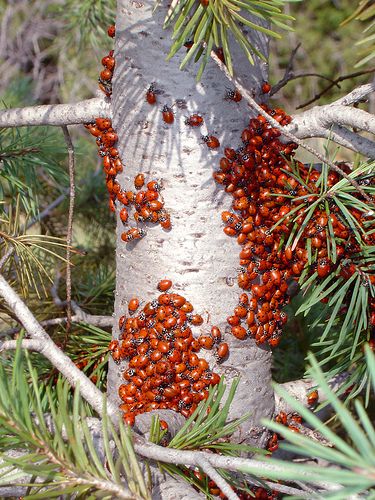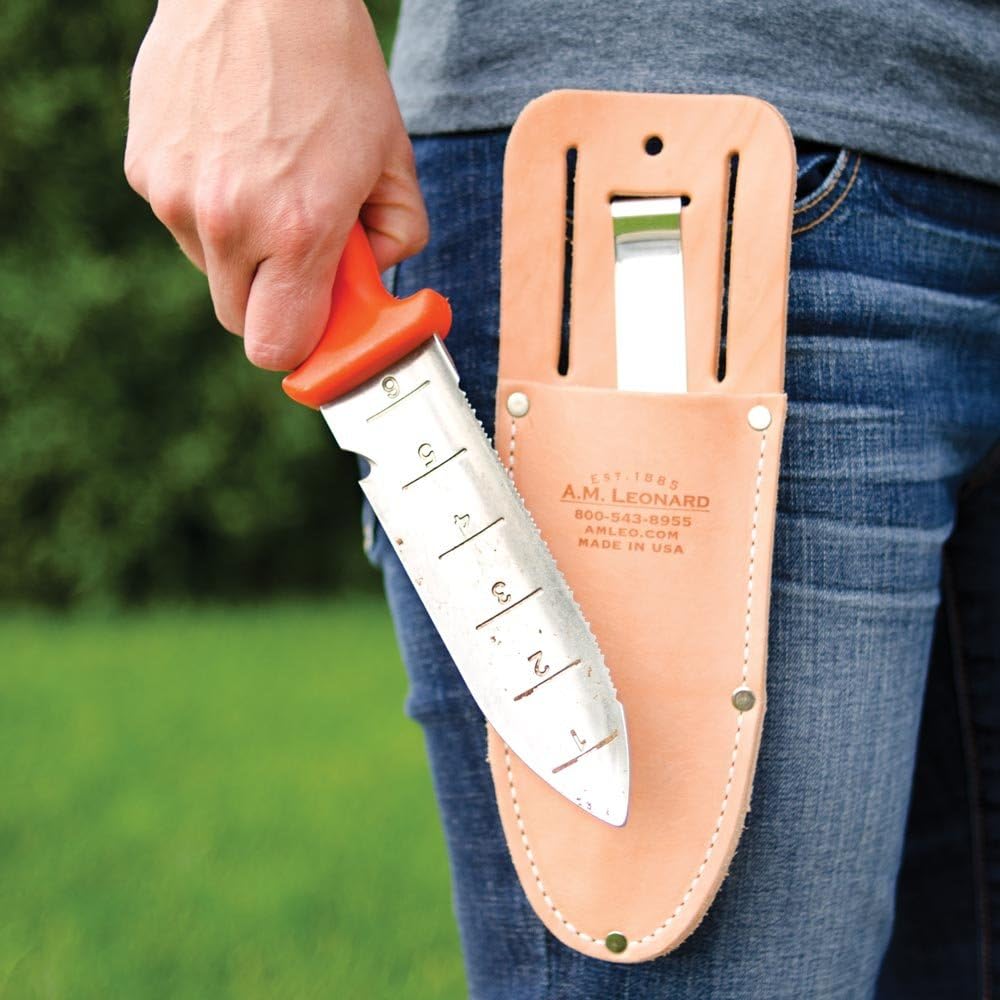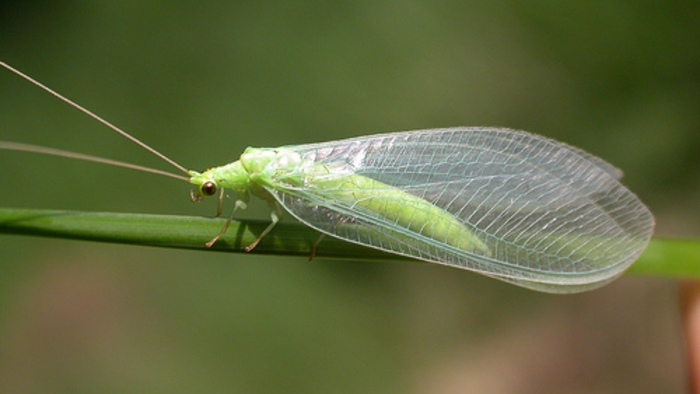
Many people recognize lady bugs or lady beetles as valuable beneficial insects for the garden. Baby ladybugs adore munching on aphids and will consume about 400 of the plant-sucking pests before they grow up into adult lady bugs. In a lifetime, lady bugs will devour about 5,000 aphids before their lifecycle is over. While aphids are the main course for a ladybug, they won’t pass up side dishes such as tomato hornworms, mealybugs, cabbage moths, whiteflies, and scales.
Providing you haven’t bombed your yard with pesticides (which are also friend-icides by the way – the chemicals don’t know the difference), ladybugs will automatically come to your garden wherever aphids gather. Still, as much as we gardeners claim that we have patience, we tend to want to hurry things along. The temptation to purchase that black netted bag holding hundreds of garden soldiers sometimes proves irresistible. No harm in that.
The trick is to find a way to keep the ladybugs you release in your garden well…in your garden. I may as well tell you the honest truth up front; usually, the bright little beetles fly off in to the garden next door. This can be frustrating after you’ve gone to all of that trouble of purchasing them and transporting them carefully back to the homestead.
After all, you’ve offered them a loving home in the bosom of your inviting yard and garden. If you’ve used pesticides in recent weeks (other than those soapy homemade organic ones), you could be sending them to their death. I’m not trying to be dramatic here – just honest.
Keeping Ladybugs in Your Garden or Yard
There are a couple of ways to encourage your new friends to hang around your place and not go skipping off to the neighbor’s house. On the other hand, if they truly do all leave the vicinity, it probably means that your yard doesn’t have enough food for them (read: pests) and they’re off in search of nourishment. This is actually good news when you think about it. Your garden is most likely very ecologically balanced if this is the case and it should allow you to get really puffed up about it.
The first thing you want to do is use their metabolism to slow them down by using your refrigerator. Notice I didn’t say your freezer – that would be too much of a good thing, therefore, turning it into a bad thing. This will keep them in a holding pattern (a slightly dormant state) until the time that you want to release them. The idea is to keep them in the fridge for a short amount of time, not banish them to Siberia.
Release them in the evening hours and they’ll be certain to find a place to sleep and settle in for the night. In the early morning hours, they’ll stir, find some delicious plant pasts, and hopefully, make themselves at home. Another good idea is to release them in groups over a period of hours or a day or two. This ups your chances of keeping some around.
Some gardeners suggest spraying water into your plants before letting the ladybugs loose as ladybugs get thirsty, too. If you really insist on a captive audience, some commercial ladybug sources say that it’s perfectly harmless to give them a little mist of a soda solution (1 part soda & 1 part water) before letting them go, too. It makes their wings a bit sticky, which keeps them crawling instead of flying for a week. Feels a bit like cheating; but we’re not abouve a little cheating.
Fine Gardening Recommended Products

Corona AG 4930 Long Straight Snip, Tempered Steel
Fine Gardening receives a commission for items purchased through links on this site, including Amazon Associates and other affiliate advertising programs.

A.M. Leonard Deluxe Soil Knife & Leather Sheath Combo
Fine Gardening receives a commission for items purchased through links on this site, including Amazon Associates and other affiliate advertising programs.

Greenworks 40V 14" Chainsaw, 2.5Ah USB Battery and Charger Included
Fine Gardening receives a commission for items purchased through links on this site, including Amazon Associates and other affiliate advertising programs.





















Comments
Log in or create an account to post a comment.
Sign up Log in